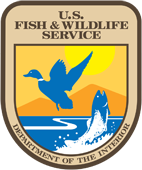Regional assessment of canine distemper virus in wild carnivores
Strategic Priority
Conservation & Science - Fish and Wildlife Health (“One Health”)
Project Documents
No project documents available.
Project Description
Canine distemper virus (CDV) is a globally distributed, highly infectious morbillivirus affecting numerous mammalian species. In the United States, many domestic and wild carnivores are susceptible to CDV, including important furbearer species such as the raccoon (Procyon lotor), gray fox (Urocyon cinereoargenteus), striped skunk (Mephitis mephitis) and coyote (Canis latrans). Neurologic disease caused by CDV is indistinguishable from that caused by rabies virus (RABV). Many wild animals with neurological symptoms are submitted to public health laboratories for rabies virus (RABV) testing, often without additional testing for canine distemper virus (CDV) or other pathogens. This may confound CDV surveillance efforts and lead to an underreporting of CDV prevalence in wild populations. This 1-year research project aims to promote cooperation and information exchange between state wildlife agencies and public health departments to investigate the presence, distribution, and prevalence of CDV in neurological wild carnivores previously submitted to public health laboratories for RABV testing. Additionally, this project will update the current knowledge regarding the diversity of CDV strains circulating among wild carnivores. To accomplish this, brain tissues and associated metadata will be collected from RABV-negative wild carnivores previously submitted to public health laboratories. Molecular testing for CDV will be conducted at the Southeastern Cooperative Wildlife Disease Study using real-time RT-PCR, and positive samples will be further analyzed to identify CDV strains. Deliverables include a standardized sample collection protocol, an online repository for sample data and diagnostic results, and the results of CDV testing on ~1500 wild carnivore brain tissues with corresponding phylogenetic analyses of viral strains. The findings will be published in a peer-reviewed manuscript, shared in technical reports, and presented at scientific conferences. This grant will benefit wild carnivores across 49 states, especially in the 42 states where carnivore-variant RABV strains hinder CDV surveillance. Finally, this study will provide crucial data on CDV prevalence and strain diversity and promote collaboration between state wildlife agencies and public health departments, fostering partnerships.
Project Facts
- Organization Name: University of Georgia
- Organization Status: Public Institution Of Higher Education
- State: Georgia
- Obligation: $175,899
- Start Date: 01-01-2025
- End Date: 12-31-2025


